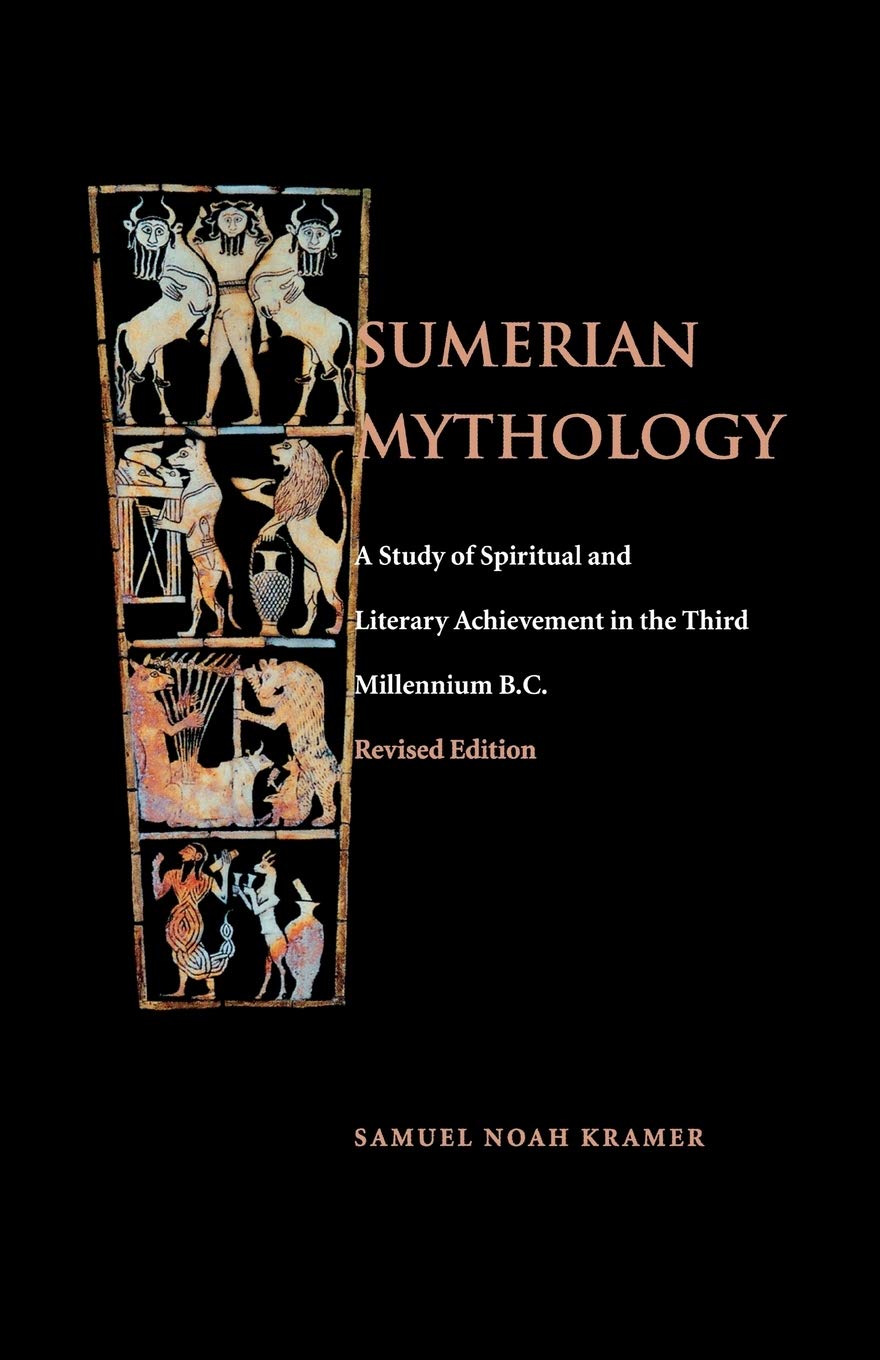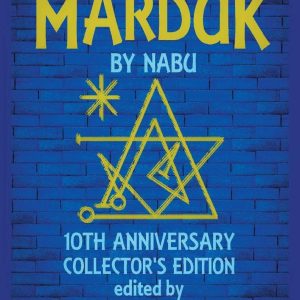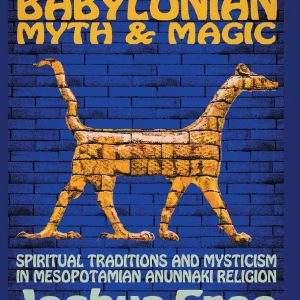Sumerian Mythology Kramer, Samuel Noah 9780812210477: : Books
$16.16
Additional information
| ASIN : | 0812210476 |
|---|---|
| Publisher : | University of Pennsylvania Press; Revised edition (October 29, 1998) |
| Language : | English |
| Paperback : | 184 pages |
| ISBN-10 : | 9780812210477 |
| ISBN-13 : | 978-0812210477 |
| Lexile measure : | 1400L |
| Item Weight : | 8 ounces |
| Dimensions : | 5.5 x 0.5 x 8.25 inches |
| Best Sellers Rank: | #215 in Folklore & Mythology Studies |
| Customer Reviews: | 133 |






5.0 out of 5 stars
and putting together the most coherent versions yet of the great myths of Sumerian civilization
Kramer spent a lifetime piecing together the scattered cuneiform tablets of Sumer, translating them, and putting together the most coherent versions yet of the great myths of Sumerian civilization. Kramer is still authoritative and highly readable to boot.
4.0 out of 5 stars
Really great; really short.
I found this book to be a very refreshing introduction to Sumerian mythology.However, like the author states some of the translations are not that accurate. Also, I wish this book was longer.Besides those two things, this book is awesome and I recommend it to anyone just beginning to study Sumerian mythology.
12 people found this helpful
1.0 out of 5 stars
Save your money, better books out there!
While the book is very informative, and gives great notations to other on other sources of further reading. The overall product is shotty at best. After reading this book, I was taken away by the amount of silly typos; incomplete cut-off sentences, and lack of quality control. So angered by the dozens of typographical errors, I actually found myself looking for the publisher stamp to actually call and complain. Surprise, surprise! No publisher info… which is a first for me. Not worth the 11 bucks I paid. It reads less like an educational text of historical pre-European civilization, and more like a high school book report punctuated and proof read by a solid C student.
2 people found this helpful
2.0 out of 5 stars
unsatisfied
while i find this book a good read, i was left very unsatisfied. i felt there was much left out of this book that could have been touched on. also i found myself bored to death through the authors commentary on what little translation of the sumerian texts there were. while i was led to believe that this book would discuss much of their religious customs,myths, and beliefs, it touches on very little of any. while this is not a terrible read i am sure there is much better than this.
23 people found this helpful
5.0 out of 5 stars
Still a Celebrated Sumeriologist After 100 Years
While Samuel Noah Kramer was an active Sumerian archaeologist as of at least 100 years ago, and much has come to light that further elucidated and continues to clarify (or not?) what little we knew/know about the Sumerians, even now, his efforts in attempting to shed some light on the enigmatic Sumerians is still appreciated by the younger class of Sumeriologists and others.Kramer’s writing style makes it easy to want to continue reading, and in fact he’s one of the few archaeologists who doesn’t bore me to the point that I either fall asleep or I put the book down altogether.As for the content, Kramer focuses – as the title states – on Sumerian Mythology, which even after a hundred years of explication by mainstream archaeology/academia has not been able to determine anything more than Kramer and his colleagues of that time period were able to provide. Unless, of course, one considers Zecharia Sitchin and the newer breed of Sumeriologists. But, I digress.Excellent book. Highly recommended.
Superb
Very informative book!
One person found this helpful
Five Stars
important addition to my book mountain
3 people found this helpful
Four Stars
Interesting read
4.0 out of 5 stars
Blah blah
The text was easy to read and I very much enjoyed the pictures of sumerian tablets. One in particular shows Utu being a badass throwing his light rays all while with one leg stomping an unknown diety. My analysis? Don’t mess with Utu. Is a good book if one plans to learn more of sumeria. One would also be wise to avoid Utu. See you all in An-Ki. Say hello to Francis for me, thanks.
2 people found this helpful
4.0 out of 5 stars
An original but great archaeologist
Samuel Noah Kramer was an early archaeologist but should not be discounted as unreliable for that reason. His work is still cited and well done. This book contains information available in other books but still a good buy. I am glad I added it to my library.
One person found this helpful
4.0 out of 5 stars
I was not epecting a book written almost a century …
I was not epecting a book written almost a century ago, it talks about revisted and updated editions what is a little anoying. Price was alright and a quick delivery
4.0 out of 5 stars
Four Stars
Decent reprint of a classic.
One person found this helpful
3.0 out of 5 stars
OK in parts, but not enough ACTUAL translation. …
OK in parts, but not enough ACTUAL translation. Just enough to tease you. I want a book FULL of translated text, stories, and mythology.This guy spent way too much time explaining how much he knows about Sumerian Mythology.”Yeah, yeah, yeah, now get to the point, please.”
17 people found this helpful
5.0 out of 5 stars
Five Stars
This series of books on Sumer was a gift. I haven’t personally reviewed/read them.
5.0 out of 5 stars
Thank you
Thank you
5.0 out of 5 stars
excellent overview
while I’m no expert in the culture of ancient Sumer, I found the book interesting and informative and a fine adjunct to the other books by Kramer.
5.0 out of 5 stars
Good little book.
Tell you that when I am finished it but a joy to own. Just to think that this is the seeds from which the Bible grew from?
5.0 out of 5 stars
Great Information.
I love history, and books like this are very worth reading. Any book that deals with the very early days of this planets history is a good read to me.
5.0 out of 5 stars
Sumerian Mythology
Great portable sized book. It contains many pictures of artifacts, ancient symbols and ancient texts. It contains the Sumerian writing system in a very organized chart for easy interpreting. Highly recommend this book.
One person found this helpful
5.0 out of 5 stars
Five Stars
It was nice to read something with just facts.
One person found this helpful
5.0 out of 5 stars
Sumerian Mythology
I greatly enjoyed this book; Samuel Noah Kramer is my favorite author and I will always buy from this author again.
One person found this helpful
5.0 out of 5 stars
Five Stars
This is a history book and cannot be described as requested
5.0 out of 5 stars
Five Stars
An interesting mithological approach about the beginning of history.
5.0 out of 5 stars
Five Stars
Good read
3.0 out of 5 stars
Three Stars
Ok book a little difficult to read.
5.0 out of 5 stars
Five Stars
excellent
5.0 out of 5 stars
Five Stars
Very good
4.0 out of 5 stars
Out of date but still worth reading
Any piece of scholarship that has a preface that baldly states that quite a bit of the following translations are wrong immediately throws out warning signals.However, this is quite a useful handbook, even if the author pointedly tells the reader that “History begins at Sumer” is more accurate. It has that touch that encompasses all ancient historical secondary sources written in the early part of the twentieth century – a narrative style, whereby it is just as important to provide both a description of actions and a background of the people and methods that got the several thousand clay tablets translated.Given today’s somewhat dry “facts, facts, facts” attitude of most ancient historians, it is most refreshing because understanding those who compiled the work gives a better understanding of the translation.The book excellently gives a rundown of the pantheon of Sumerian Gods, the acculturation of Sumerian mythology into Semitic and translates a goodly portion (sometimes inaccurately as the preface warns!) of the tablets.Whilst any serious Sumerian scholar must move on to latter translations and works, this is a good starting point, particularly for those wanting to see a ‘decipherment’ in progress.
59 people found this helpful
5.0 out of 5 stars
Sumerians became Greeks…
If you love Greek mythology you’ll recognize everything they wrote about in the first few pages of this book. The running logic is that Sumerians disappeared, just vanished all of a sudden leaving behind all of this incredible history and knowledge but when you compare it to the Greek you realize instantly that they simply moved on to more fertile grounds around the Mediterranean.There, I said it out loud; Sumerians are Greeks are Celts are Caucasians. The story of creation itself proves it, “An” the male deity unties with “Ki” the female and they create “Enlil,” the earth.Uranus and Gaia. “Ur” is Sumerian for “Man” Gaia is simply Enlil’s brother Ea and Ki; “mother and child” “Madonna and Child” ie: Mother Mary and Jesus. Incidentally the name “Mary” comes from a merger of the Sumerian words for “Sea” and “God-child.”Over long periods or time the words and meanings change to have more or less significance but the basic story remains the same and the basic characters remain as well. So that over time Heaven and Earth (Annunaki) would be responsible for the creation of the earth “Iapetus” and the Oceans “Oceanus” and the weather “Hyperion” and the Dinosaurs or giants “Coeus” and the land itself “Crius” and “Mnemosyne” which is “Eve” or fertility, the fructifying bounty of earth throughout time ie: the living things in nature which are recorded in memory by their descendants.
6 people found this helpful
5.0 out of 5 stars
Amazing!
This was a REALLY good read. My only complaint is with the physical book itself….several pages have fallen out because they weren’t glued in good.
5.0 out of 5 stars
Most of the stories of the ancient writings ring true
I find that there are many books written about this subject but they differ in the slightest by a single letter or word translation. It’s best to get a hold of as many as possible to create a real view of the meanings. This book surely helps my quest.
One person found this helpful
4.0 out of 5 stars
Very posssibly profound fact related indrirectly by book
It was an excllant book. Being a translation, what i can confim is the content is what I sogh and the translations were excellant.What is more intersting is the reason I bough it was I was searching and found book by autodidacts relating theories of hte dark gods being alens, which being skeptical, I keep and open mind ubt tend towards not agreing so I go this book to read p on scholarly work. It was printed originally around 1913 or so, I can’t remember exactly and had many reprints, upto 1970 or so, but it states in the 1941 reprint intro that, all the works in the book, man incomplete or fragmented, were now complete and t expexct in hte next year a new volume with the complete works of creation myths in their complete form from the DIg in Ur I beleive by the University of Penn.But no such book was ever printed and books on Sumeria by academia are scarce and all very old predating 1945 or so, and even the Librarry at university of Penn idn’t offer the books of new translations, but perhaps I didin’t look.What was interesting i s that the only place on the net any related translations from digs were avaialble was the University of Ocford, which had only a shot intro on the works found in the Penn Dig in circa 1870, and hte oxford site lost its funding in 1996 or so and it was a site that made it difficult and tedious to download the material.Its bery much as if, acadamia was for some reason pressured to keep Quiet.Of course the reason I don’t beleive are due t o aliens, but that, if one is familiar with world myth, philosophy and religions one sees that, Sumeria may be the root source reeligon from which alal others evolved with some variance as, usually there are always singularities. But, to me it seemed that, Sumeria, from studiying related texts, in a way, jeopardized the authenticity fo veracity of the claims of relgions that are important to nations, as relgion is an aid to nationalism, and in etraining people and develping a culture that is docile and also it, as it I beleive is known that COnstantine’s original vsion of In Hoc Vince and the sun god, was not of Christ but a form of apollo, who has similar traits, but that, it, well Socrates in Critias and TImeas mentions, or n those writings it is mentioned that basically the greek msteries to the higher initiates were utterly monistic and the mths were anologies and a sort of miror to mathamatical language used in science toda, they used analogy, and for years, how rare it is you see a book on greek myths where they translate the proper nouns, as Prometheus means forethought and Epimetheus means afterthought, so, that oudl go with what I said earlier aobut plato’s writings or via the name socrates, Plato’s main character.IF we look at Gilgamesh and then revelations, despite Sumer said to be rediscovered and a frgotten nation to history, John of Patmos used WHore of Bablon, a important character in Gilgamesh and probabl, the mirror of eve, where Endiku, was probabl the achetype of adam, but Sumeria like Early Hindu societies of the rig veda, celebrated Urbanism, rather than decryied it.Also it mentioned the Sumerian language was translateable as Chladean poterry had 3 r so languages, and so they pulled from that to translate. Chaldean society was semetic and was the society Abram came from, and there is sign of a flood that consumed the valley and that woudl explain why there is no prehistor or evidenc f a proto sumeria.Bt so where even the story of Pandora, where promtheus staels fire and thus the beginning of knwoele, he is punshed and man falls, albeit through epimetheus. But then if you study things, Intellgiences and elementals in one religion are titans and gods in another, angels and fallen angels in another and in GNostic, Aeons and archaons, not respectively of course.Bu it is probably, hte mthery cults saw benefit along with religous leaders to remove factionims as thelay took preferance of gods an d that cause tribalism, and so a monistic god, which is the oldest form, albeit they sometimes relate animism, and welll, shinto or anscetor worship, but then they also ha a sun god, Amaterazu. But, the shift as, Sumeraia was non semetic and the next laer was Akkadian, then chalcedeian I bleive, both semitic and the movemnt towards seing knowledge as the reason for the fall from Innocence.Laslty as the reson I got into it was the seeing the books claiming aliens came down to mine and made man, as they needed food, the author migh have missed that hindu thought in the time of the vedas, also aknowledged that the gods couldnt eat so soma was made b priests and Brahman made a blaanc btween heave and earth or man, called Dharma, or obligaions, law of sorts. As man was powerless, but could provide food and gods had power but could not eat.Again I keep m skepticism as, my belef is if you werent there and didnt see it, then what you ahve is pure conjecture, and confidnce has no relation tot corectness of opine.tha tthe US is 80% christian and that well, Nixons strategy for winning the south focuses on that fact, as well guns and so forth, [watergate sort buggered him], but religions that are singular to a nation are beneficial to nationalism, and CHritianity is and promotes docility, and is oddly similar in ways to buddhism, which i discovered there were buddhist monk missionaries in JEruselem and the area for quite a while. But, so the possibility arose that SUmerian culture ma have been sot of swept to the sid twice in history for similar reasons. As, if one looks at the wire frame strructure of the story lines, the fix wondeerfull with most other religions, if ou understand that, well the first language is nature itself, and eh, Ive goneon far o much. But a excellant book fo those seeking the development of mankind via religion in this case or mythology.For at this tim in history, as much as we think we know we are a yougn race and what we know is still insignificant as to what is avaiable, and science has its own supersticians, and prejudices. As well I think our anscesrs, the ancients ma have had a greater sense of self that we do, via our psychology, neurology and sociology, which are still barel seedling sciences…albeit they proabal disagree. We certainyl have changed little, per war, corrption and imperialism and mankind rather than evolving conscosly is chasing his tale….and the weest soon may fall in to its decline, as ironically, technology directly ffects our culture and concept of self and our intelligenc, as pposed to our facility of rational thought, which is, a lower form of sentience, but that, as we grown technolgoically, we decline psychlogically as we become less self reliant and fre and more dependant for security, convienience and the hedonism that luxury, once a word that had no positive connotation, which is the norm of our western way.
5 people found this helpful
5.0 out of 5 stars
Very Readable and Informative
This is a wonderful book for getting to know Sumerian Mythology!
5.0 out of 5 stars
they lived a happy live.
I feel so blessed that the cunniform has been translated and published in paperbacks. It insightful to learn how people lived almost 6,000 years ago. They were bright, energetic, responsible. From the few things which have been found in archeology sites, they lived a happy live.
3.0 out of 5 stars
Books received bent
Also in this book, I was hoping that there would be more information on Marduk, but there was maybe a paragraph. Other than that, it’s a great book!
5.0 out of 5 stars
A great resource for learning about the ancient Sumerian people
A great resource for learning about the ancient Sumerian people. Full of well researched facts by one of the original archaeologists to dig in what was once Sumer.
One person found this helpful
4.0 out of 5 stars
A good read
This is a good book for anyone studying the RELIGION of the Sumerians. This book is a collection of some of their religious beliefs/myths with a few notes helping the reader connect them together. It is a good read and not too dry… you should be able to finish it in a day. I liked this book much better than his book “HISTORY BEGINS AT SUMER”, but I say if you are looking to buy one book on the Sumerians in general then you need to purchase Mr. Kramers book “THE SUMERIANS” instead. It contains most of the same information found in this book and a lot more on their daily lives, history, and etc.
28 people found this helpful
4.0 out of 5 stars
Good start to mythology
It’s a very interesting read, however I feel that there was a lot of information missing from the book. The author would frequently skim over stories or aspects of the myth because he deemed them to be unclear or unimportant. I would like to have seen more information rather than just the aspects he found worthwhile.
12 people found this helpful